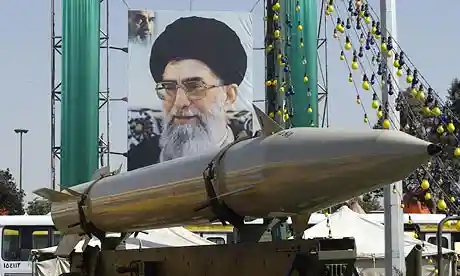Fears about the Biden admin’s exchange are unfounded
By Tobiashus Swatherton
Americans are overreacting to Biden’s Iranian Prisoner Swap. All that is known of the situation is that Iran would receive $6,000,000,000 for only five Iranian-American prisoners. Firstly, $6,000,000,000 is a significant amount of money for the American government to be paying in a civilian prisoner swap—25% of NASA’s annual budget. Secondly, Americans believe that the money will be supporting an antagonistic government that regularly sponsors terrorism. Iran donates 100,000,000 dollars every year to Hamas. Thirdly, the prisoner swap will set a precedent to encourage other nations to imitate this prisoner swap. Fortunately for all Americans, these three main concerns are all unfounded.
In reality, Iran will not receive any American money, and the deal will see the release of American prisoners and improve American-Iranian relations. The six billion dollars was always Iranian money, meaning that the American taxpayer was not directly funding the Iranian government; rather, the only agreement made was that the United States would unfreeze Iran’s oil money in South Korean banks. The history of the frozen account originates from when former President Trump backpedaled from the Iran Nuclear Deal and placed various sanctions on the country. Not only did this decision aggravate American-Iranian relations, but it also destroyed decades of progress on limiting Iranian nuclear capabilities as well. When the Iran Nuclear Deal was signed, Iran only had Uranium enriched to 3.67%, well below what is required for a nuclear bomb. Now, Iran can enrich Uranium to 83.7%. Unfreezing the six billion dollars came at no cost to Americans and improved the dangerously poor Iranian-American relations.
The sole beneficiary of the new deal would be the Iranian people, not the Iranian military. The Kuwaiti and American governments will ensure that the funds will only be allocated for humanitarian trade and that money will only ever be spent on the Iranian people, thus forcing the money to be used for the common good. Although the definition of humanitarian trade is up for interpretation, the American government would not allow that money to be spent on Iranian nuclear or military programs. The economic boost the funding will provide will undoubtedly help many impoverished Iranians, the majority of whom receive less than $4,300 per year. The deal is favorable because it helps an entire population without jeopardizing American national security.
Although the exchange sets a precedent that promotes the false imprisonment of American citizens in foreign nations, such a precedent is short-sighted as the conditions necessary would be exceedingly rare. For the nature of the deal to be imitated, a nation must first have billions of assets frozen in foreign banks due to sanctions and second, be willing to imprison American citizens and compromise American relations. Only if a nation meets those niche requirements will the precedent have any effect on the American government. Additionally, nations with strong relations with the U.S. tend to have economies stronger than ones that don’t. Even if six billion dollars somehow outweighed the benefits of a strong economy, America would increase tariffs in countries it has bad relations with, negating any profits from the swap. The benefits that the deal brings to not only the American prisoners but also Iran’s population are completely outweighed by such a rare occurrence.
Americans do not have many issues to worry about when it comes to Biden’s Iranian Prisoner Swap. The deal poses no burden to the American taxpayer, will not benefit the Iranian military or nuclear programs, and the precedent the deal does set is almost negligible. The backlash of this overwhelmingly beneficial prisoner swap is a symptom of many Americans’ inability to read beyond the headlines.



